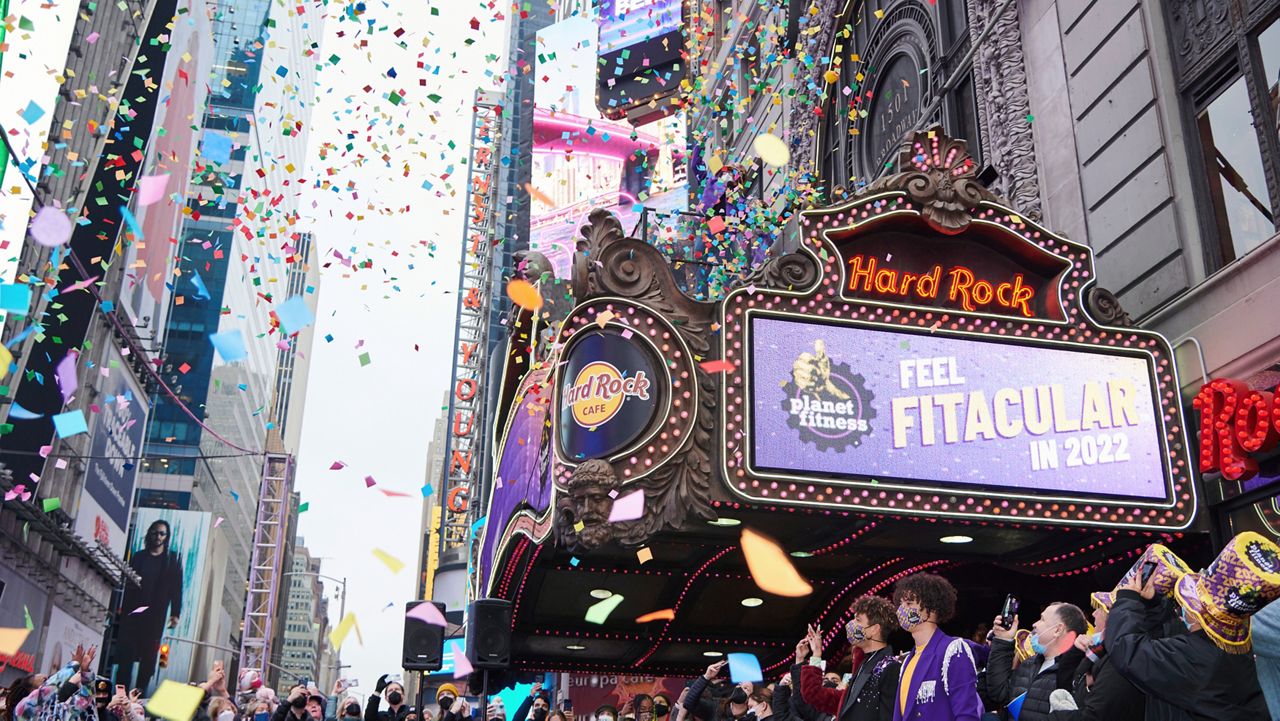As the New Year's Eve holiday approaches, a massive surge in COVID-19 cases driven by the omicron variant threatens to upend festivities across the country and around the world.
New COVID-19 cases in the the U.S. have soared to over 265,000 per day on average, according to data from Johns Hopkins University, and per the CDC, new cases in a single day topped 440,00 on Monday.
The head of the World Health Association on Wednesday said he's worried about a "tsunami" of COVID-19 cases in the coming weeks.
"I’m highly concerned that omicron, being more transmissible (and) circulating at the same time as delta, is leading to a tsunami of cases," WHO Director-General Tedros Adhanom Ghebreyesus said at a briefing on Wednesday, urging leaders to make a "new year’s resolution" of getting their populations 70% vaccinated by the end of July.
Although hospitalizations have lagged behind new cases – around 60,000 are hospitalized with COVID-19 in the U.S., per the CDC, about half of what they were in January – and data suggests that omicron may be more mild than previous iterations of the coronavirus, the surge in cases is having a major impact on New Years celebrations worldwide.
In London, the city's mayor Sadiq Khan canceled plans for a major fireworks celebration in Trafalgar Square. In Paris, fireworks over the Champs-Élysées have been canceled, and large-scale gatherings will be banned. Berlin's New Year's Eve event at the famed Brandenburg Gate will go on without any audience members, and German Chancellor Olaf Scholz will cap gatherings to a maximum of 10 people. New Delhi and Tokyo will see their major New Year's Eve events canceled. In Greece, music will be banned at New Year's celebrations, and other places like Cape Town, South Africa, and cities across Bolivia will see gatherings restricted.
On the other hand, Poland will reopen nightclubs on New Year's Eve, and in Russia, many COVID-19 precautions will be lifted during the country's 10-day holiday period which begins on Dec. 31.
In the U.S., New York's celebration in Times Square will still go on, though the event will be scaled back in a major way – attendance will be capped at 15,000.
At a White House COVID-19 briefing on Wednesday, with just two days to go until New Year's Eve, health officials warned against large gatherings, though said there's no need to cancel smaller gatherings.
"If you are in a situation with a family setting in your home with family, parents, children, grandparents, and everyone is vaccinated and boosted, although the risk is never zero in anything, the risk is low enough that we feel you should continue to go through with those plans of having a home-related, vaccinated, boosted gathering with family and close friends who are also vaccinated and boosted," Dr. Anthony Fauci, chief medical adviser to President Joe Biden, said Wednesday.
"It really depends on what your plans are," Dr. Fauci said, adding: "If your plans are to go to a 40- or 50-person New Year's Eve party with all the bells and whistles and everybody hugging and kissing and wishing each other a 'Happy New Year,' I would strongly recommend that this year we do not do that."
The CDC earlier this week cut the COVID-19 isolation and quarantine window from 10 days to five, keeping with growing evidence that people with the virus are most infectious in the first few days. But the decision has drawn criticism and confusion from certain health experts.
"These updates to our recommendations were made to reflect what we currently know about COVID-19 infection, including how long a person is most infectious," CDC Director Rochelle Walensky said at a briefing on Wednesday. "Studies have demonstrated that when ... people are infected with SARS-CoV-2, people are most infectious in the one to two days before symptoms develop and the two to three days after. After five days, the risk of ongoing transmission substantially decreases."
"Let me make clear that we are standing on the shoulders of two years of science, two years of understanding transmissibility, and a lot of information that we have gleaned from the wildtype virus, as well as the Alpha and Delta variants, and more that we continue to learn every single day about Omicron," Dr. Walensky added.



